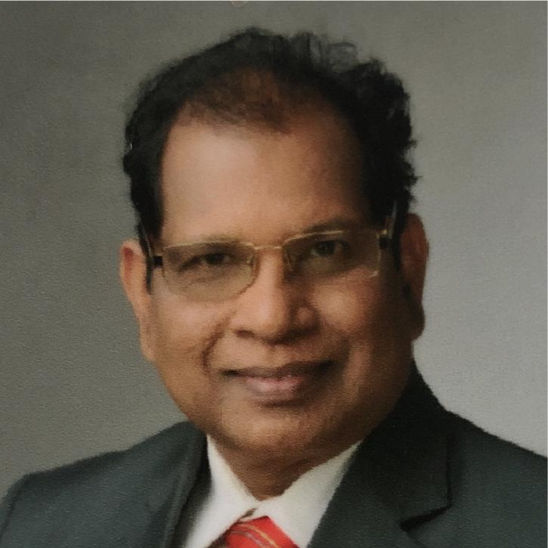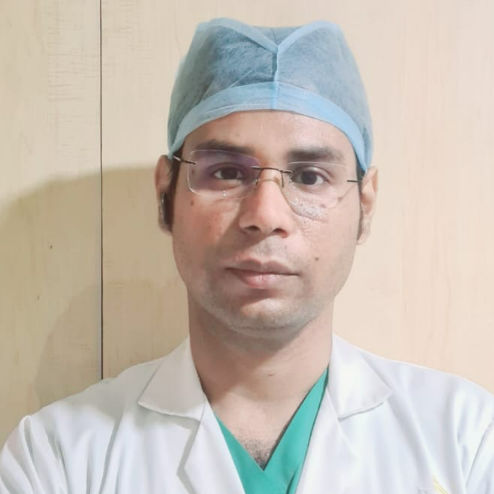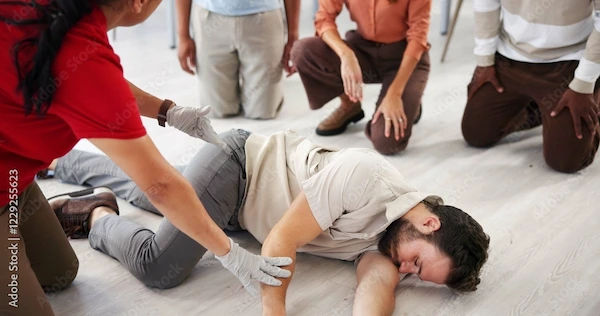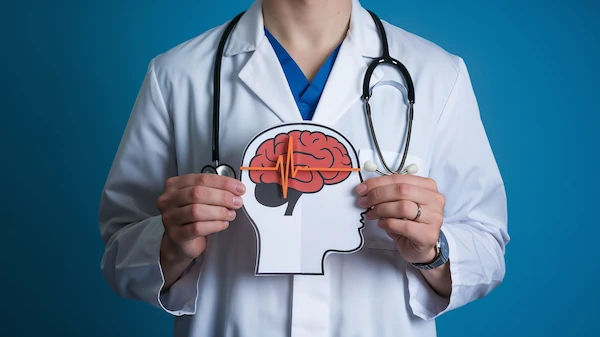Seizures: Symptoms, Treatment, Types and Causes
Understand seizures, their symptoms, types, causes, and treatment options. Learn how seizures affect brain function and the approaches available for effective management.

Written by Dr. Mohammed Kamran
Reviewed by Dr. Shaik Abdul Kalam MD (Physician)
Last updated on 13th Jan, 2026

Seizures can be a frightening experience, both for the person going through them and for those around them. If you or someone you know has had a seizure, you may have many questions about what happened, why it occurred, and what can be done to manage it. This article will help you understand seizures in simple terms, covering their symptoms, types, causes, and treatment options, so you can feel more informed and prepared.
What Is a Seizure?
A seizure is a sudden, uncontrolled electrical disturbance in the brain that temporarily affects behavior, movements, sensations, or awareness. Seizures can vary widely—some may cause mild symptoms like a brief staring spell, while others can lead to violent shaking and loss of consciousness.
Seizures are often associated with epilepsy, a neurological disorder where a person has recurring seizures. However, not all seizures mean a person has epilepsy—some can happen due to temporary conditions like high fever, low blood sugar, or head injuries.
Consult a Top Neurologist
Symptoms of a Seizure
Seizure symptoms depend on the type of seizure and which part of the brain is affected. Common signs include:
Generalized Seizures (affecting both sides of the brain)
Tonic-clonic seizures (formerly called grand mal seizures):
- Sudden loss of consciousness
- Stiffening of muscles (tonic phase)
- Jerking movements (clonic phase)
- Sometimes, biting the tongue or loss of bladder control
Absence seizures (petit mal seizures):
- Brief staring spells (lasting a few seconds)
- May look like daydreaming
- Common in children
Focal (Partial) Seizures (starting in one part of the brain)
Focal aware seizures (simple partial seizures):
- Person remains conscious but may experience unusual sensations (tingling, déjà vu, strange smells/tastes)
- Focal impaired awareness seizures (complex partial seizures):
- Altered consciousness (confusion, staring blankly, repetitive movements like lip-smacking)
Other Symptoms
- Temporary confusion
- Sudden fear or anxiety
- Uncontrollable jerking of arms or legs
- Loss of awareness
If someone has a seizure lasting more than 5 minutes or has repeated seizures without regaining consciousness, seek emergency medical help immediately.
Types of Seizures
Seizures are broadly classified into two main categories:
1. Generalized Seizures – Affect both sides of the brain from the start.
- Tonic-clonic seizures
- Absence seizures
- Myoclonic seizures (sudden, brief jerks)
- Atonic seizures (sudden loss of muscle tone, causing falls)
2. Focal (Partial) Seizures – Begin in one area of the brain.
- Focal aware seizures
- Focal impaired awareness seizures
- Can sometimes spread and become generalized seizures
What Causes Seizures?
Seizures can be triggered by various factors, including:
- Epilepsy (recurrent seizures without a clear cause)
- High fever (especially in children) – Febrile seizures
- Head injuries (trauma, concussions)
- Brain infections (meningitis, encephalitis)
- Stroke or brain tumors
- Low blood sugar (hypoglycemia)
- Electrolyte imbalances (low sodium, calcium, or magnesium)
- Drug or alcohol withdrawal
- Genetic factors (family history of epilepsy)
- Sleep deprivation or extreme stress
Sometimes, seizures happen without any identifiable cause.
Diagnosis and Treatment
If you or a loved one experiences a seizure, it’s important to consult a doctor. Diagnosis may involve:
- Medical history and physical exam – To check for possible causes.
- Electroencephalogram (EEG) – Records brain wave activity to detect abnormal patterns.
- Brain imaging (MRI or CT scan) – To look for structural issues like tumors or scars.
- Blood tests – To check for infections, metabolic disorders, or genetic conditions.
Get Your Health Assessed
Treatment Options
1. Medications (Anti-seizure drugs) – The most common treatment, helping control seizures in many people.
2. Lifestyle Changes – Avoiding triggers like lack of sleep, stress, or flashing lights.
3. Dietary Therapy – Some benefit from a ketogenic diet (high-fat, low-carb) under medical supervision.
4. Surgery – For severe cases where seizures originate from a specific brain area.
5. Vagus Nerve Stimulation (VNS) – A device implanted to help reduce seizures.
How to Help Someone Having a Seizure
If you witness someone having a seizure:
- Stay calm and time the seizure.
- Gently guide them to the floor if they’re standing.
- Turn them on their side to prevent choking.
- Clear the area of sharp or hard objects.
- Do not restrain them or put anything in their mouth.
- Stay with them until they recover.
DO NOT hold them down, give water/food, or perform CPR unless they stop breathing.
When to See a Doctor
Consult a neurologist if:
- It’s the first seizure.
- Seizures last longer than 5 minutes.
- Seizures happen frequently.
- There’s an injury during the seizure.
- Seizures occur during pregnancy or with other medical conditions.
If you need expert advice, you can book a consultation with a neurologist on Apollo 24|7 for proper diagnosis and treatment.
Living with Seizures: Tips for Management
- Take medications as prescribed – Never stop abruptly.
- Get enough sleep – Fatigue can trigger seizures.
- Manage stress – Yoga, meditation, and relaxation techniques help.
- Avoid alcohol and recreational drugs – They can interfere with medications.
- Wear a medical alert bracelet – Helps others know what to do in an emergency.
Final Thoughts
Seizures can be alarming, but with the right diagnosis and treatment, many people can lead normal, healthy lives. If you or someone you know experiences seizures, don’t hesitate to seek medical help. Early intervention can make a big difference in managing the condition effectively.
Consult a Top Neurologist
Consult a Top Neurologist

Dr. Uddalak Chakraborty
Neurologist
8 Years • MBBS, MD(GENL.MED.),DM(NEUROLOGY)
Kolkata
MCR SUPER SPECIALITY POLY CLINIC & PATHOLOGY, Kolkata
Dr Venkata Sumanth Chava
Neurologist
4 Years • "• DM neurology at Jawaharlal Nehru medical college, KLE academy of higher education and research, Belagavi. • MD internal medicine at JSS medical college, JSS academy of higher education and research, Mysuru. • MBBS at Prathima institute of medical sciences, Dr NTR university of health sciences, Karimnagar."
Hyderabad
Apollo Hospitals Financial District, Hyderabad

Dr. Ranjith G
Neurologist
10 Years • DM (Neurology) FSIN (Fellowship in stroke and intervention neurology) MD (Internal Medicine)
Hyderabad
Apollo Hospitals Financial District, Hyderabad

Dr. M Madhusudhana Babu
Neurologist
31 Years • MD, DM
Chinagadila
Apollo Hospitals Health City Unit, Chinagadila
(100+ Patients)

Dr Debnath Dwaipayan
Neurosurgeon
9 Years • MBBS, MS(Gen. Surgery), DrNB (Neurosurgery)
Delhi
Apollo Hospitals Indraprastha, Delhi
Consult a Top Neurologist

Dr. Uddalak Chakraborty
Neurologist
8 Years • MBBS, MD(GENL.MED.),DM(NEUROLOGY)
Kolkata
MCR SUPER SPECIALITY POLY CLINIC & PATHOLOGY, Kolkata
Dr Venkata Sumanth Chava
Neurologist
4 Years • "• DM neurology at Jawaharlal Nehru medical college, KLE academy of higher education and research, Belagavi. • MD internal medicine at JSS medical college, JSS academy of higher education and research, Mysuru. • MBBS at Prathima institute of medical sciences, Dr NTR university of health sciences, Karimnagar."
Hyderabad
Apollo Hospitals Financial District, Hyderabad

Dr. Ranjith G
Neurologist
10 Years • DM (Neurology) FSIN (Fellowship in stroke and intervention neurology) MD (Internal Medicine)
Hyderabad
Apollo Hospitals Financial District, Hyderabad

Dr. M Madhusudhana Babu
Neurologist
31 Years • MD, DM
Chinagadila
Apollo Hospitals Health City Unit, Chinagadila
(100+ Patients)

Dr Debnath Dwaipayan
Neurosurgeon
9 Years • MBBS, MS(Gen. Surgery), DrNB (Neurosurgery)
Delhi
Apollo Hospitals Indraprastha, Delhi





